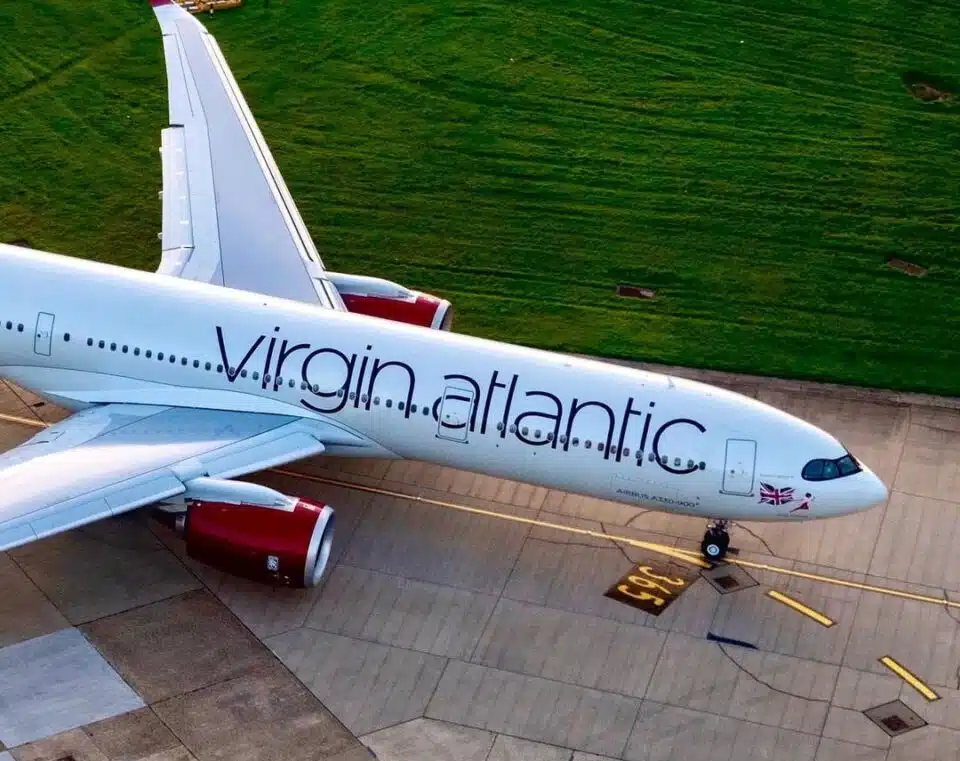LONDON, Nov 28 —The first trans-atlantic flight by an airliner using pure sustainable aviation fuel (Saf) will depart from London’s Heathrow Airport on Tuesday.
Virgin Atlantic will operate the flight to New York JFK with a Boeing 787 Dreamliner aircraft.
Virgin founder Sir Richard Branson, UK Transport Secretary Mark Harper and Virgin Atlantic chief executive Shai Weiss will be among the passengers on the flight, which is not carrying fare-paying travellers.
The Civil Aviation Authority reviewed various aspects of the flight before granting an operating permit, including analysing ground tests with an engine running on 100 per cent Saf, reported PA Media.
Virgin Atlantic was awarded up to £1 million (US$1.26 million) by the UK government in December 2022 to plan and operate the flight to demonstrate the effectiveness of Saf.
Saf is seen as vital to reduce the aviation industry’s carbon emissions but is currently several times more expensive to produce than conventional jet fuel.
It makes up only about 0.1 per cent of aviation fuel used globally.
Saf is made from sustainable sources such as agricultural waste and used cooking oil, meaning its production involves using about 70 per cent less carbon.
It can be used in jet engines to a maximum blend of 50 per cent with kerosene without the need for any modifications.
US company Gulfstream Aerospace operated the first trans-atlantic flight powered by 100 per cent Saf earlier this month using a business jet.
Virgin Atlantic’s flight will be the first of its kind by a large passenger aircraft.
Weiss said: “Getting to this point has been more than a year in the making and taken radical collaboration across our consortium partners and Government.”
“We’re committed to using 10 per cent Saf by 2030, but to get there we need the Government to support the creation of a UK Saf industry.”
“We know that if we can make it, we can fly it.”
Last week, the Department for Transport (DfT) said the flight will “usher in a new normal for international travel” and make “guilt-free flying a reality”.
But campaign group Aviation Environment Federation (AEF) strongly disputed that claim.
AEF policy director Cait Hewitt said: “The idea that this flight somehow gets us closer to guilt-free flying is a joke.”
“Saf represent around 0.1 per cent of aviation fuel globally and will be very hard to scale up sustainably.”
She accused the aviation sector of being “misleading” over the impact of using Saf on carbon emissions.
She added: “Hopefully, we’ll have better technological solutions in future but, for now, the only way to cut CO2 from aviation is to fly less.”
Under the DfT’s Saf mandate, at least 10 per cent of fuel used by airlines in the UK must be made from sustainable feedstocks by 2030.
Without UK Saf production, meeting the mandate will rely heavily on imports.
Harper recently insisted the UK is “on track” to meet its target of having at least five commercial Saf plants in construction by 2025.
Jonathon Counsell, group head of sustainability at British Airways’ parent company IAG, said: “Test flights prove that the aviation industry is technically ready to make the switch to Saf, but what we need now is action from governments to incentivise investment and get plants into construction.”
Tim Alderslade, chief executive of trade body Airlines UK, said: “This is a hugely important milestone in the race to net zero for UK aviation and our congratulations go to the Virgin Atlantic team and their partners, together with the UK Government, for making it happen.”
“We now need to make occasions like this the new normal, ensuring UK airlines are able to access enough affordable Saf this decade in order to meet the mandate, with as much of it as possible produced here in the UK.”
“The last thing we want is higher fuel costs for UK passengers compared to the rest of Europe and the US, with worse sustainability outcomes and thousands of new jobs lost overseas.”
— Bernama





